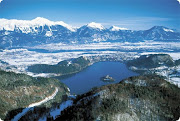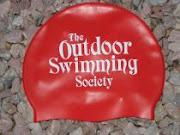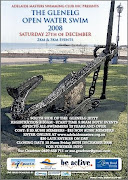 Pavel Kuznetsov, the first Russian to complete the English Channel, will not only lead the very competitive Russian contingent (Yuri Kudinov and Natalia Pankina) at the Great Channel Swim across the English Channel, but he is also planning an unprecedented race in one of the most unique open water swimming venues in the world.
Pavel Kuznetsov, the first Russian to complete the English Channel, will not only lead the very competitive Russian contingent (Yuri Kudinov and Natalia Pankina) at the Great Channel Swim across the English Channel, but he is also planning an unprecedented race in one of the most unique open water swimming venues in the world. Pavel will host a 10-18K open water swim in Lake Baikal (the 'rich lake' or the 'Blue Eye of Siberia'), the world’s oldest, deepest and largest lake located in southern Siberia. Lake Baikal contains more water than all of the Great Lakes of North America combined (actually 20% of the world’s freshwater supply). UNESCO declared the lake a World Heritage site due to its stunning bio-diversity.
Pavel will host a 10-18K open water swim in Lake Baikal (the 'rich lake' or the 'Blue Eye of Siberia'), the world’s oldest, deepest and largest lake located in southern Siberia. Lake Baikal contains more water than all of the Great Lakes of North America combined (actually 20% of the world’s freshwater supply). UNESCO declared the lake a World Heritage site due to its stunning bio-diversity.  Most of its 2,500+ plant and animal species, including the freshwater seal (shown on left), evolved in pristine isolation and are found nowhere else on the planet. The Siberian lake has many exciting aquatic wonders and likely holds many more undiscovered marvels in its incredibly deep waters.
Most of its 2,500+ plant and animal species, including the freshwater seal (shown on left), evolved in pristine isolation and are found nowhere else on the planet. The Siberian lake has many exciting aquatic wonders and likely holds many more undiscovered marvels in its incredibly deep waters. Stephanie Hampton, Deputy Director of the National Center for Ecological Analysis & Synthesis, describes Baikal, "Lake Baikal probably the most beautiful place I've ever been - I'm thinking especially right now of the day I spent on Olkhon Island when the wildflowers were spectacular and the serenity was awe-inspiring. It is the world's most ancient lake with a proliferation of biodiversity that is breathtaking."
"Many of the unique fish in Baikal resemble deep-sea fishes rather than other freshwater fish that are more closely related to them - with big eyes and spindly bodies. Also, sponge forests are common. Here you are in this incredibly cold lake at fairly high latitude, and underwater, this sponge forest looks more like the Caribbean than the subarctic. It is like a freshwater Galapagos in the midst of Siberia."
"More than half of the animals in Baikal are not found anywhere else. Lake Baikal has been around for 25 million years, so there has been plenty of time for organisms to evolve to its special environment."
"Ice is a very prominent feature of life on Lake Baikal. Ice normally starts taking over the lake in January and it doesn't leave until May or June - so, life goes on in Lake Baikal under ice for nearly half the year. The top predator in the lake, the Baikal seal, raises its pups on ice in the winter in snow caves, fishing for food in the lake water by using holes in the ice."
 Although all the logistics and approvals have not yet been confirmed, Pavel is looking at a late July or early August date. Several English Channel swimmers from Great Britain and several Russians are committed to attend the planned race.
Although all the logistics and approvals have not yet been confirmed, Pavel is looking at a late July or early August date. Several English Channel swimmers from Great Britain and several Russians are committed to attend the planned race. Pavel plans a week-long tour around the lake for up to 15 people to acclimatize to the water culminating in a 10-18K swim in the clean, clear, cold water (between 10-19°C water or 50-66°F).
 Pavel says, "I want to name the annual Baikal swim in honor of Lynne Cox (shown on lef), the great American open water swimmer who contributed greatly to friendship between Russia and America. She is well-known throughout Russia for her Bering Strait swim between Alaska and the Soviet Union in 1987. It will be something fantastic and unforgettable."
Pavel says, "I want to name the annual Baikal swim in honor of Lynne Cox (shown on lef), the great American open water swimmer who contributed greatly to friendship between Russia and America. She is well-known throughout Russia for her Bering Strait swim between Alaska and the Soviet Union in 1987. It will be something fantastic and unforgettable."Note: if there is any interest in this swim, contact paulkuz@paulkuz.ru or headcoach@10Kswim.com.
Photo of Russian swimmers from the Russian Swimming Masters website. Photo of Lynne Cox by Bettmann of Corbis.




















1 comment:
I have always looked at maps and seen Lake Baikal and wondered what it would be like to swim there! This is fantastic!
Post a Comment